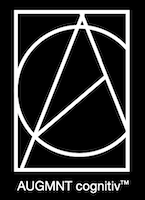
COGNITIV FUTURE™ SERIES
4-HOUR WORKSHOP
Futures
Literacy
Every person and every organization is already using the future — as a filter on what matters, what can wait, what is worth attempting. This workshop makes that invisible practice conscious, so it can be worked with deliberately.
WORKSHOP
FORMAT :
DURATION :
DELIVERY :
GROUP SIZE :
OUTCOME :
Structured Workshop
4 Hours
On-site or Remote
Team or Leadership (minimum 8-10)
Expanded Clarity
Get more information →
See what is included ↓
Chexk availability →
A UNIVERSAL CONDITION — REGARDLESS OF AN ORGANIZATION’S INDUSTRY, SIZE, OR SOPHISTICATION
Before any decision is made, a view of the future has already shaped which options were visible, which risks were noticed, and what was ruled out without deliberation.
That view is rarely chosen. It is inherited — from past experience, organizational culture, and assumptions so familiar they no longer feel like assumptions at all.
Futures Literacy does not require a prior practice — or any prior awareness that the future is already present in thinking and action. That is precisely what it reveals.
WHAT THIS WORKSHOP IS
Not a tool.
A capability.
Futures Literacy is not foresight, scenario-building, or strategic planning. It does not define preferred futures or design transformation. It is a foundational human capability — one that precedes and improves all of those practices, whether or not they are already in place.
It begins not by asking what will happen, but by examining how the future is already present in thinking, coordination, and behavior. The assumptions people carry about what will persist, what will change, what can wait, and what is inevitable quietly govern attention, priorities, and decisions — in every organization, at every level of maturity.
Making those assumptions visible is what changes the quality of judgment, dialogue, and action. That is what this workshop does.
In the age of AI: As intelligent systems take on more of the analytical layer, the capacity for human judgment, interpretation, and meaning-making becomes your irreducible competitive advantage. This workshop strengthens exactly that.
WORKSHOP STRUCTURE
01 – Conceptual Framing
Establish a precise, shared understanding of what Futures Literacy is — and is not. Clear the confusion between prediction, foresight, and assumption.
02 – Guided Reflection
Participants surface their own implicit futures — the assumptions quietly driving their current decisions, attention, and inaction.
03 – Collective Sense-Making
The group works with divergent future assumptions as data — understanding why alignment is elusive, and what becomes possible when it’s achieved.
04 – Practical Orientation
Participants leave with expanded capacity to decide and act under uncertainty — not a plan, but a recalibrated judgment.
SCALE OF IMPACT
Relevant at every level,
in any organization
INDIVIDUAL
Every person carries assumptions about what is possible, what is realistic, and what can be defer-red. FL makes those assumptions conscious — so that individual choice becomes deliberate rather than inherited.
TEAM
Common Language
Most team conflicts are not about data or execution — they reflect different, unspoken views of the future. FL gives teams the language to surface that difference and work with it, rather than isolating them in their views indefinitely.
ORGANIZATION
Organizations act on futures they have rarely examined collectively. FL strengthens the shared cognitive foundation that makes coordination meaningful — not just efficient — when direction cannot be fully specified in advance.
MACRO
No challenge exists in isolation. Futures Literacy builds the capacity to engage complexity as interacting systems rather than isolated variables — supporting clearer thinking when no single framework is sufficient.
“We are always acting with an intention toward the future. Futures Literacy makes that intention conscious — and therefore governable.”
NEXT STEP
A future is already shaping every decision your organization makes.
4 hours. Lasting shift in how people and organization think under uncertainty.
Request more information or a workshop date →